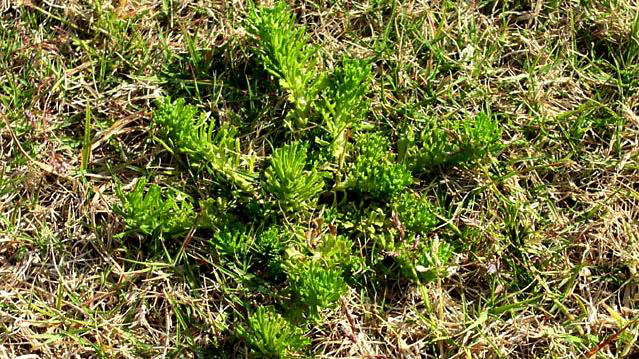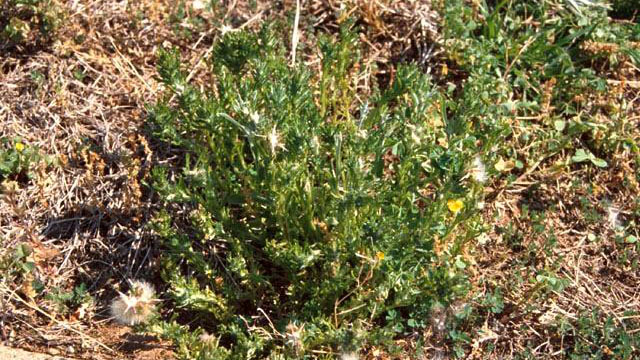Description
Facelis (Facelis retusa), also called annual trampweed, is a low-growing, winter annual broadleaf weed that is commonly found in warm-season lawns, pastures, sandy fields and waste areas. This plant is a native of South America but has become established in the United States as far west as Texas and Oklahoma and northeast into Tennessee and North Carolina. Facelis has freely branched stems at the base that recline along the ground. The stems are covered with tufts of long, soft hairs. Facelis leaves are alternate, generally lack petioles and have a narrow shape. The lower leaf surface is covered with white tufts of long hairs, and the upper surface is dull green. The leaf apex is indented to rounded, usually with a tiny sharp point. Facelis produces small white flowers and reproduces by seed in the spring. Volumes of feathery seed, similar in appearance to dandelion seed, can cover a lawn 2 - 3 inches deep.
Cultural Control
Facelis can easily invade thin, poorly managed warm-season lawns. Winter annual broadleaf weeds such as facelis germinate in the fall or winter and grow during any warm weather, which may occur in the winter, but otherwise remain somewhat dormant during the winter. They resume growth and produce seed in the spring and die as temperatures increase in late spring and early summer. They quickly invade thin turf areas especially where there is good soil moisture. Shade may also encourage growth. A dense, vigorous turf is the best way to reduce the encroachment of this weed. First, select adapted turfgrass cultivars for your area and then properly fertilize, mow, and water to encourage dense growth.
Species Data
- GROWTH SEASON / LIFE CYCLE
- winter annual weed
- GROWTH HABIT
- LEAFLET NUMBER
- one
- LEAF MARGIN
- leaf apex is indented to rounded, usually with a tiny sharp point
- LEAF HAIRS
- white tufts of long hairs on lower surface
- LEAF / LEAFLET SHAPE
- linear / oblong; leaves generally lack petioles and have a narrow shape
- LEAF WIDTH
- <1⁄2 inch
- LEAF ARRANGEMENT
- alternate
- FLOWER COLOR
- white
Publication date: Nov. 21, 2017
N.C. Cooperative Extension prohibits discrimination and harassment regardless of age, color, disability, family and marital status, gender identity, national origin, political beliefs, race, religion, sex (including pregnancy), sexual orientation and veteran status.


